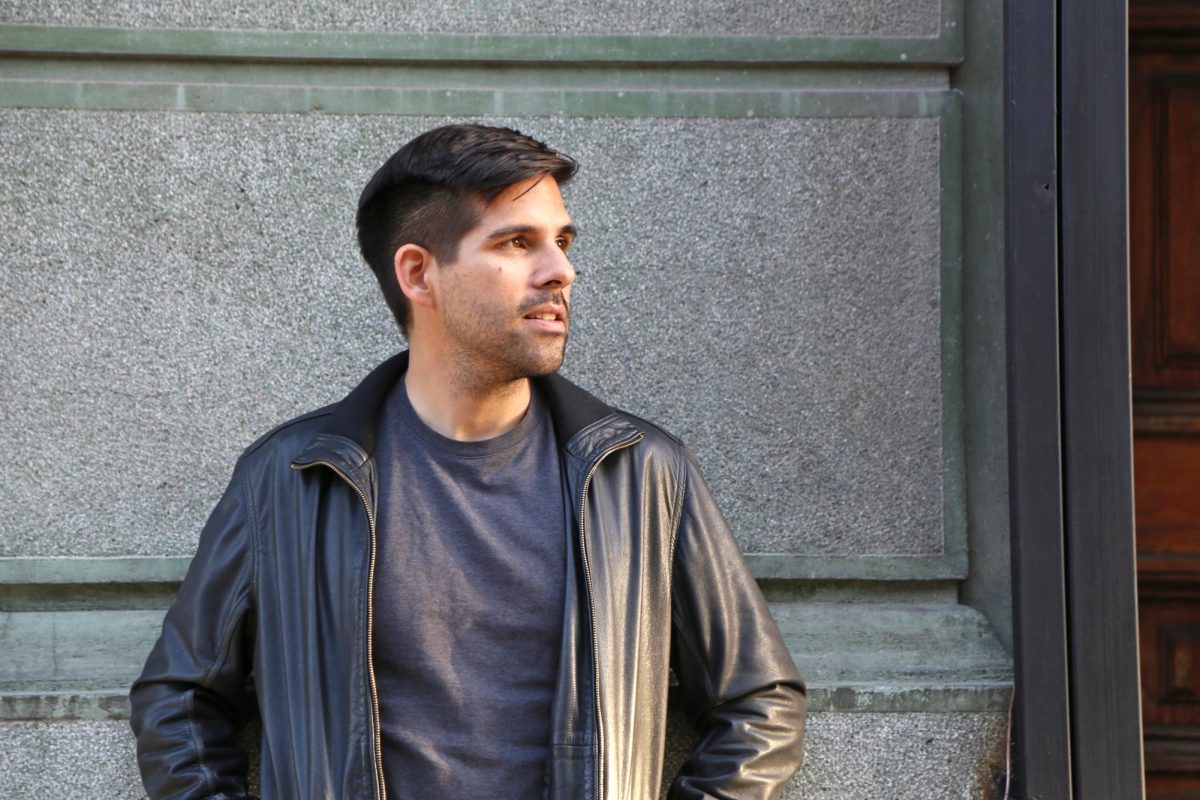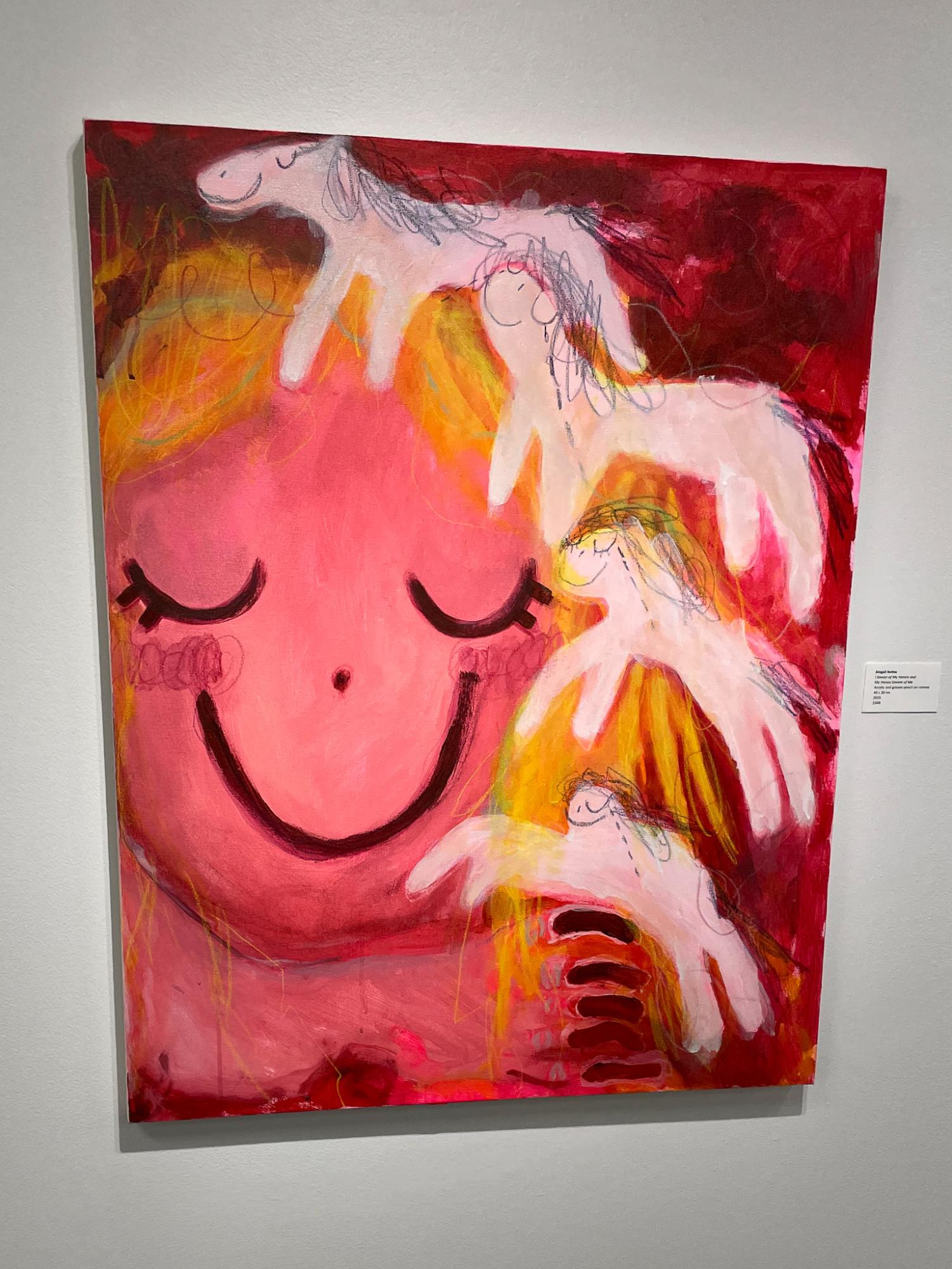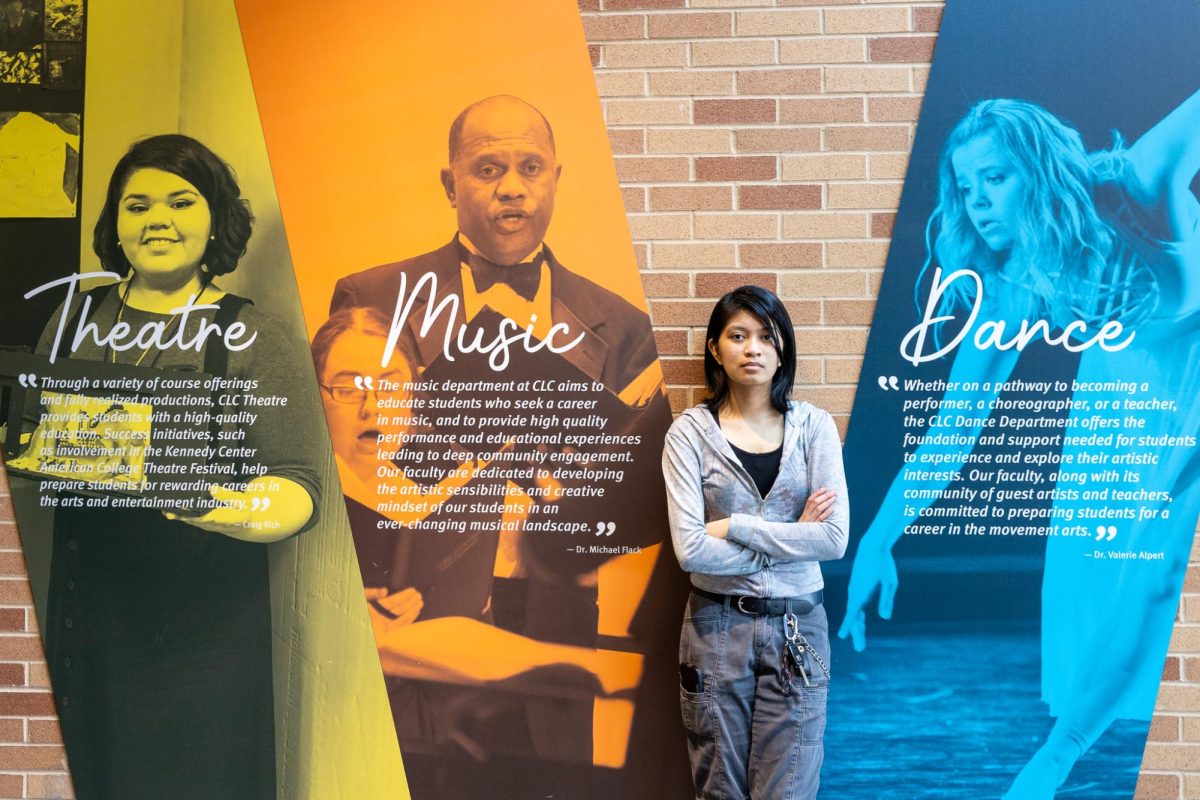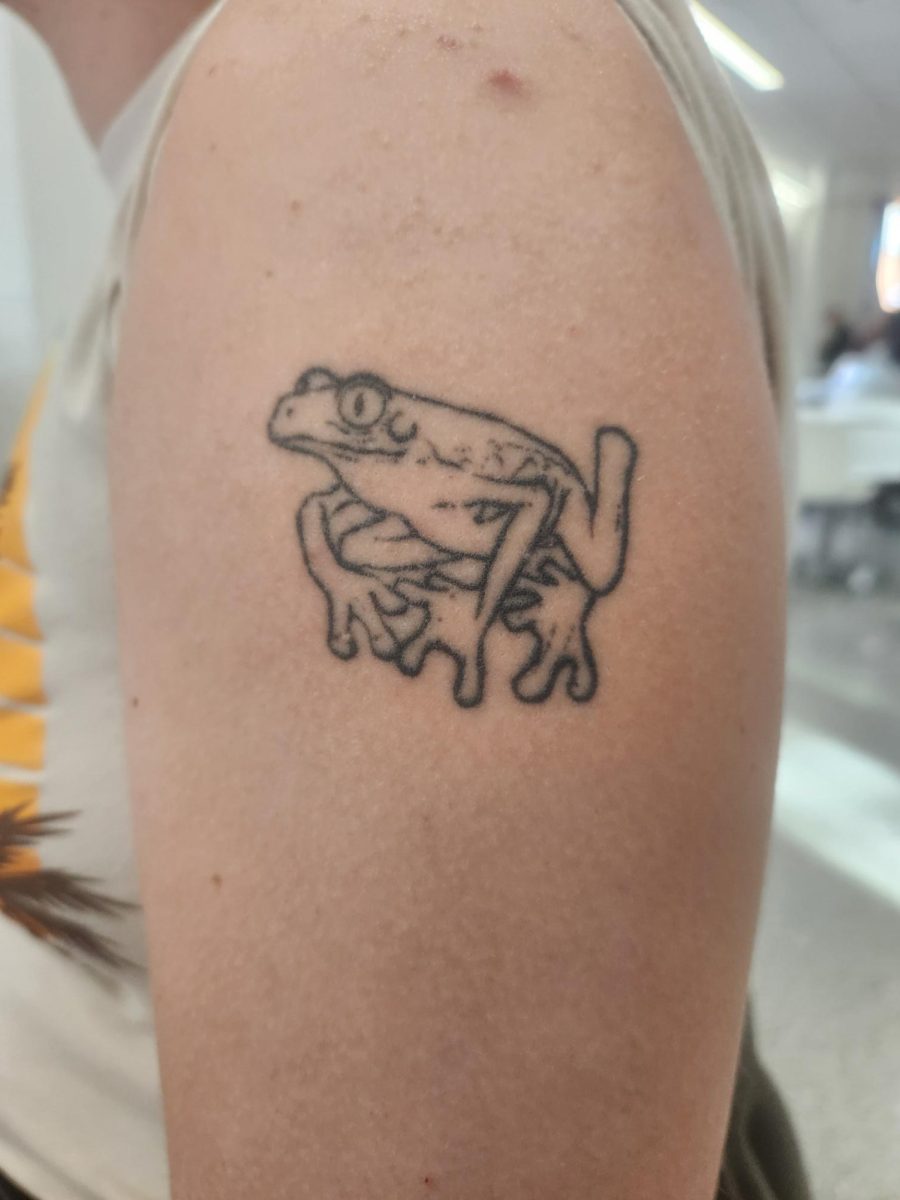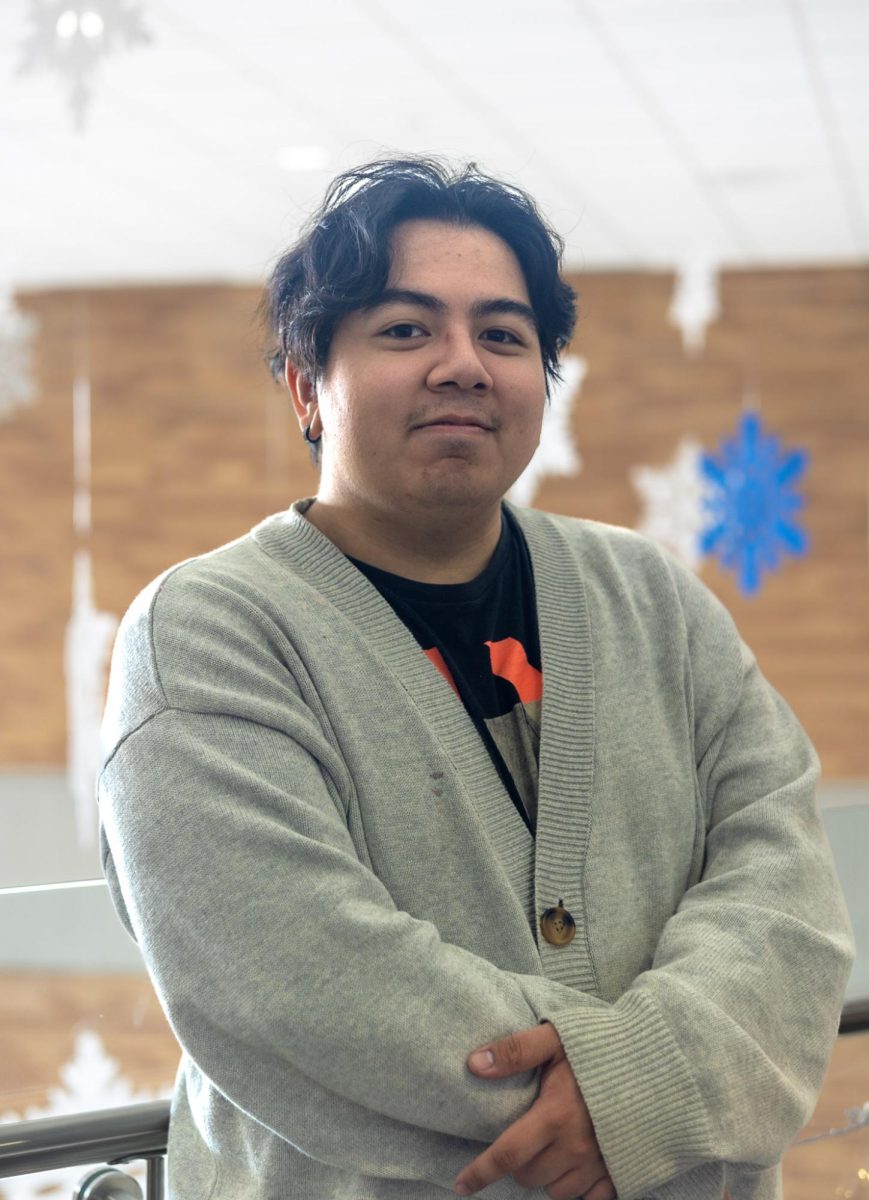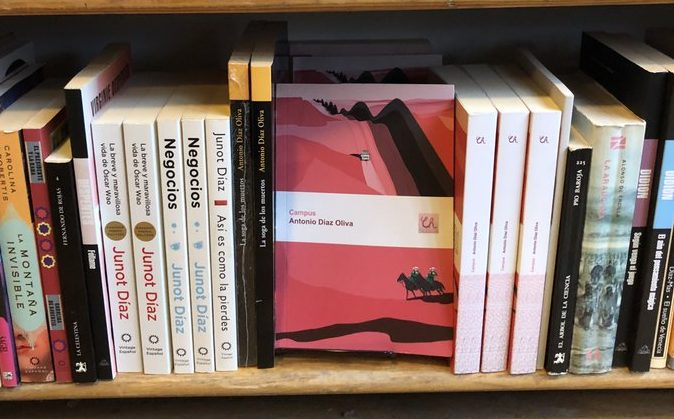
Antonio Díaz Oliva, an award-winning Chilean author and journalist visited College of Lake County students for its Fall Reading Series on Oct. 29.
During his event at the Grayslake campus, Oliva discussed his most recent novel “Campus”, as well as his story “Rabbits” (included in the horror anthology “Through the Night Like a Snake: Latin American Horror Stories,” and answered questions asked by students and staff. The topic of defining the words and feelings of “weird” and “eerie” was brought up. Toward the end of the event, students were given a handout that allowed them to write about personal experiences in their lives where they felt “weird” or “eerie.”
In the handout, Oliva wrote an example of a personal experience that explores the weird and the eerie. To summarize his weird and eerie experience, he will occasionally confuse the white noise machines in his daughters’ bedroom for “several voices, some of them screaming and asking for help.” He sometimes imagines “someone locked in one of the white noise machines.”
Students at the event were able to get a glimpse into writing horror as everyone wrote down or thought about various situations and had the opportunity to share them with the group. Each student had various answers ranging from walking to your car alone in the dark to running up the stairs after turning the lights off.
Oliva has published five novels in Spanish, his most recent novel Campus was published in 2022. His horror short story “Rabbits” was included in the anthology “Through the Night Like a Snake: Latin American Horror Stories,” which the New York Times named one of the best ten horror books of 2024.
Before moving to the United States, he worked as a journalist in Chile.
Oliva’s love for writing began at a young age. He credits comic books with getting him interested in writing.
“I was super into comic books,” Oliva said. “When I got bored and I wanted to know what would happen in the next issue, I would start writing my own comic book, like the sequel of that comic book.”
Oliva came to the U.S. to further his studies. After applying and receiving a fulbright scholarship to New York University, Oliva completed his masters of fine arts degree in creative writing. To this day, he believes he received the scholarship because his statement was “really good”.
“That’s my advice for everyone,” Oliva said. “Writing can get you things, including scholarships.
When applying to colleges in Chile, Oliva knew he wanted to “do something with words.” He majored in journalism and later worked in magazines and newspapers.
Oliva also won a prize for the Roberto Bolaño Young Writers Award in Chile, which led to him getting his first novel published. The award is for writers under the age of 24. After receiving the cash prize for the award, publishing houses began to approach Oliva. This led him to get his first novel published, “La Soga de los Muertos.”
Living in Chicago has exposed Oliva to many local authors. His favorite authors change over time. Recently, one of his favorite authors is Chicago local, Aleksandar Hemon. More specifically, he loves Hemon’s “The Book of my Lives” and the importance of the various essays.
Oliva also enjoys “The Lottery” by Shirley Jackson.
“I know how it’s going to end, but I’m going to read it again and again and again,” Oliva said.
Roberto Bolano is another author that Oliva enjoys. He finds Bolano “very romantic.”
“Not in the sense of love, but he loved life and literature,” Oliva said. He further explains how Bolano never made it as a writer until the last five years of his life.
“So it’s very romantic when you’re a writer,” Oliva said. “You try to make it, and then you make it, and then you die.”

Oliva has published numerous novels and short stories, but the story he is most proud of is his fourth book. The novel is called, “Gente Un Poco Dañada” (Slightly Damaged People). He especially resonates with the title of his story.
“When you’re a writer, you need to be a little damaged,” Oliva said. “But not too much because then you might become a psycho killer, but you need to be slightly damaged, which is perfect because you can function in society, but there’s also something off about you, which means you’re a creative person.”
When reading the 10 short stories in that novel, Oliva feels that he got a resolve that makes him happy. He also believes that the novel takes him to places that make him feel interesting.
Compared to his other published works, his latest novel had a unique writing experience.
When writing his fifth book and second novel, “Campus,” Oliva connected to his personal life. The novel follows a university professor who lies to keep his job at the university he works for by creating a fake persona. Oliva drew back to his time teaching in Spanish departments.
“Latin American departments have a lot of egos,” Oliva said. “So the novel came from all those experiences that informed me and people I had relationships with as a colleague.”
After publishing the novel, Oliva said, “I’ve gotten a lot of emails from people saying that I did not do a good job at depicting them, but that’s their opinion.”
Oliva writes without any music playing in the background. When writing, he does not want to start thinking about the lyrics of a song that’s playing in the background. On the rare occasion where a song does influence his writing, he saturates himself in the song and listens to it constantly.
His novel “Campus” was inspired by the song “Campus” by Vampire Weekend.
“I would listen to that song when I was writing like 20 times a day,” Oliva said.
The bands “The Cure” and “Japan” also help him get into the headspace of writing horror.
Oliva has found that all four seasons of the year have hints of horror to them when it comes to getting in a horror headspace. In the fall he is more exposed to horror movies. He finds the winter to be more of a “blue sea” and more depressing, both “in a good and bad sense.” He finds horror in the spring, especially in Chicago due to every day having a different weather report. As for summer, he referenced global warming and how in the future, summer can become a horror season.
Currently, Oliva works for the Museum of Contemporary Art in Chicago as a bilingual editor. Since working there, his relationship with art has changed.
When referencing artwork at the museum, Oliva said, “It has gone from this object that’s on the wall, this almost like a commodity, to something that really reflects society, fears, and hopes.”
Out of the hundreds of artworks at the MCA, there was one exhibit that Oliva could find inspiration to write about.
In the summer of 2023, the MCA held an exhibition by the artist Gary Simmons. In one of his installations, he displayed six Klu Klux Klan outfits in child sizes. Next to them was an archive from segregation schools in the South.
The piece is a way to think about not only segregation but also the idea that actual children were wearing these outfits.
“It’s morally wrong, but how did the kid feel? Did the kid feel like he was in Halloween?” Oliva said. “He didn’t know about the symbolism of what he was wearing.”
Oliva offered young Latino writers some advice.
“Make space for writing,” he said. “Be really generous with the space you have for writing and don’t look at the phone. Use your bilingualism, use your superpower. That’s something that lots of people don’t have and can help you to improve, to boost your writing, and your relationship with both languages.
“Being Latinx doesn’t have to be the only part of your identity only because that’s your identity. That’s the beauty of fiction. You can make up your own identities on the page.”
